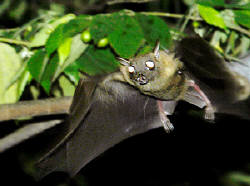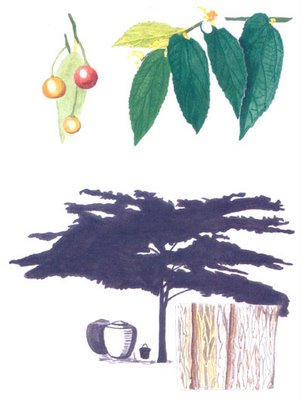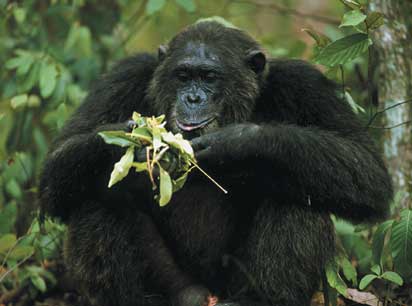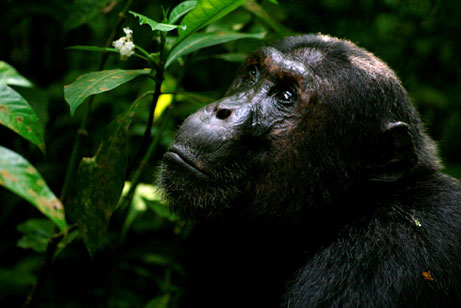 Every night, before hitting the sack, we have the unique pleasure of standing near a Jamaican Cherry tree and watching the fruit bats up close. Fantastic aerial acrobats they wheel and swoop on the abundant sweet fruit that that one small tree provides.
Every night, before hitting the sack, we have the unique pleasure of standing near a Jamaican Cherry tree and watching the fruit bats up close. Fantastic aerial acrobats they wheel and swoop on the abundant sweet fruit that that one small tree provides.These are of the genus Cynopterus and belong to the family pteropodidae (in Greek literally "winged feet"). We have two species that feed here, the Lesser Short Nosed (C. brachyotis) and the Short Nosed (C. sphinx).
Fruit bats include the giants known commonly as flying foxes and they are all endangered. Much misunderstood, they have been branded as farmers' enemies and in India are even classified as vermin - which means that they can be hunted and killed at will. So, all the fruit bats are endangered, not only due to habitat loss but also because of hunting!
In actual fact, orchard owners have nothing to fear from these shy, exquisitely beautiful creatures. When they feed on fruit it is always the overripe fruit that they eat. In fact, without the activity of the fruit bats, pollination and seed dispersal would both be terribly compromised, leading to further loss of forest trees and fruit trees.
By simply planting a few select trees, like the Jamaican Cherry (Muntingia calabura L.).

 farmers could encourage the fruit bats and have even fewer problems with fruit damage. Arguably, the droppings of fruit bats are very mineral rich and will serve to fetilize the soil in the orchards, reducing costs and increasing yields for the farmers.
farmers could encourage the fruit bats and have even fewer problems with fruit damage. Arguably, the droppings of fruit bats are very mineral rich and will serve to fetilize the soil in the orchards, reducing costs and increasing yields for the farmers. 
Muntingia itself adds value to any farm as it is a multi-use species producing edible fruit, useful fibre and attractively grained wood besides being fast growing. The tree does well in poor soils - could it be precisely because it is visited by myriads of fruit bats every night?

Please don't encourage the destruction of these beautiful and useful creatures:
AND whenever you do plant a tree, try to keep the no-longer-ubiquitous fruit bat in mind...
For a nice library of pics that shows the diversity and beauty of pteropods check out U Mich's Animal Diversity Website at
http://animaldiversity.ummz.umich.edu/site/
accounts/pictures/Pteropodidae.html
The flying series is thanks to Kampang http://www.flickr.com/photos/lonesomecrow/















 © Peter Kuper
© Peter Kuper






